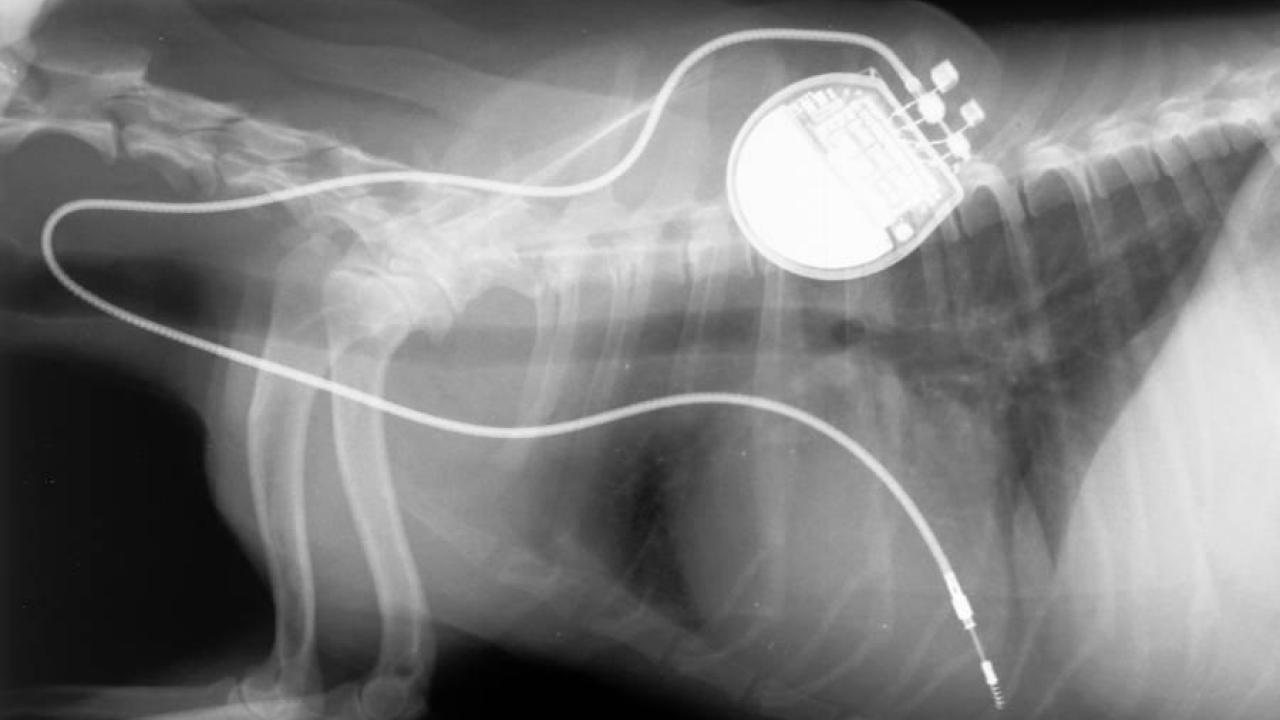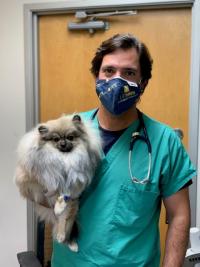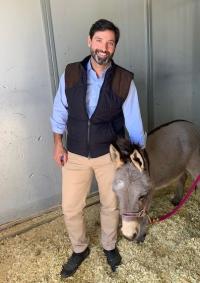
UC Davis Cardiology Referrals Available in Southern California
--This article first appeared in the April 2022 issue of Pulse magazine--
Cardiology referrals for Southern California veterinarians are available through the UC Davis School of Veterinary Medicine at its clinical satellite facility, the UC Veterinary Medical Center – San Diego (UCVMC-SD). As a specialty referral center, UCVMC-SD will work closely with your clinic to complement the excellent care and service you provide for their patients and clients. UC Davis cardiologists are available to all pets in need of specialized veterinary intervention.

Cardiology services are led by Drs. Timothy Hodge and Joao Orvalho, both diplomates of the American College of Veterinary Internal Medicine (Cardiology).
Dr. Hodge’s expertise lies in diagnosing and treating cardiomyopathy, valvular disease, arrhythmias, and repairing congenital defects in small and large animals. He has particular interests in arrhythmia management, minimally invasive interventional procedures, and myocardial diseases.
Dr. Orvalho applies non-invasive techniques such as echocardiography, electrocardiography, and cardiac angiography to diagnose diseases of the heart. He is also interested in interventional cardiology, including pacemaker implementation, balloon valvuloplasty, and patent ductus arteriosus (PDA) occlusion. Dr. Orvalho's research focuses on pulmonary hypertension, as well as interventional and medical therapies for heart disease.
The service offers an array of medical and interventional cardiology procedures, as well as live three-dimensional echocardiography and transesophageal echocardiography. Live 3-D echocardiography is an ultrasound modality that allows better imaging of the cardiac structures and provides a more sophisticated method of quantifying cardiac function. Transesophageal echocardiography uses a special ultrasound probe that is placed in the esophagus to provide a more detailed image of cardiac structures and is especially useful when performing interventional cardiac procedures such as PDA occlusion and balloon valvuloplasty.
Jessie and Cricket are two pets who recently benefitted from the cardiologists’ care:

Jessie, a 24-year-old female miniature donkey, has been a patient for many years. Originally diagnosed with a third-degree atrioventricular (AV) block, Jessie had a pacemaker implanted at another veterinary facility more than a decade ago. Dr. Orvalho has been her primary cardiologist since 2011. Pacemaker batteries need to be routinely replaced, generally every five years. Dr. Orvalho replaced the batteries in 2013 and 2018 and annually examines her. Jessie’s activity level has remained good over the years, and she tolerates exercise well.
Cricket, a 10-month-old Pomeranian, was diagnosed with a PDA as a puppy, which was causing moderate left heart volume overload. At risk for developing heart failure, she was closely monitored for a few months until finally undergoing surgery for occlusion of the PDA. A metallic coil was placed successfully, and she recovered well without complications. Following the procedure, an echocardiogram was performed and showed no blood flow through the PDA. There was no longer a shunt from the aorta to the pulmonary artery, and her heart had decreased in size. Recheck radiographs the following day revealed that the coil remained in place, and there were no signs of heart failure.
UCVMC-SD’s main facility is at 10435 Sorrento Valley Road in San Diego and can be reached by calling (858) 875-7505. Visit UCVMC-SD's website for more information about UC Davis’ Southern California veterinary services.
# # #
